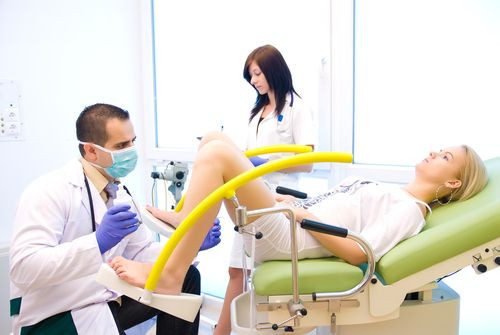FDA Panel Recommends DNA-Based HPV Test To Replace Pap Smear: Is It More Effective For Cervical Cancer Detection?

For many women, undergoing a pap smear every three years has become routine in cervical cancer prevention over the last 60 years. However, the days of having a speculum inserted into your vagina and the scraping of the soft brush, or a spatula, could soon become a thing of the past at your next gynecologist visit. In a unanimous 13-0 vote, the Food and Drug Administration (FDA) panel has recommended the Roche’s DNA-based human papillomavirus (HPV) test to replace the Pap smear as the first line of defense for cervical cancer detection.
“The data show that the proposed primary screening indication for the cobas HPV test detects more women with disease and requires fewer women without disease to go to colposcopy than cytology alone,” said the FDA panel in its recommendation. In addition, according to the committee’s new guidelines, all women over the age of 25 should be tested using only the HPV DNA test as their primary form of screening.
A pap smear would only be administered for women who test negative for HPV 16 or 18 — the genotypes that account for 70 percent of cervical cancer cases — but positive for other HPV strains considered as high-risk. A pap smear would help determine if a colposcopy, a test that can closely detect any cervical abnormalities in women, is necessary for these women. Women between the ages of 25 and older who do test positive for HPV 16 or 18 would have to undergo a colposcopy, according to the new guidelines.
Despite the panel’s approval for the HPV test, some panelists have expressed concerns over the drop in age at which women should have the test from 30 to 25. According to the ATHENA study, approximately 11 percent of women between the ages of 25 and 29 tested positive for HPV 16 or 18 with the HPV test compared to the seven percent of women in the same age group who had cytology alone as their first-line of screening. Panel members, like Dr. Paula Hillard of Stanford University in California, believe more patients in that age group would be “anxious about potentially having cancer.”
However, others like FDA panel member Dr. Kimberly Hanson, of the University of Utah and ARUP Laboratories in Salt Lake City, believe it’s an opportunity to identify women earlier. "Although colposcopy is invasive and can be anxiety-provoking, it's really very safe, so I think I'm leaning toward earlier screening,” she said, Medpage Today reported. Moreover, in Roche’s study, the HPV test was found to outperform Pap testing in measures, such as its efficiency in detecting precancerous lesions. Also, a negative result on the HPV test was seen as a better indication that a woman would remain free of lesions for the next three years, compared to a negative Pap test result.
Currently, Gardasil and Cervarix, are the two approved vaccines that can protect against HPV. Girls and boys between the ages of 9 and 11 are recommended to start getting vaccinated. The vaccine is also recommended for gay and bisexual men, and men and women who have compromised immune systems, such as living with HIV/AIDS through age 26, if they did not get fully vaccinated when they were younger. Early prevention is the best tool to protect against HPV infection and the health problems this disease can cause.
The HPV test may help further decrease the incident of invasive cervical cancer in women. According to the American Cancer Society, there will be approximately 12,360 cases of invasive cervical cancer cases diagnosed in 2014, and approximately 4,020 women will die from this cancer. Most cases are found in women younger than 50, but rarely younger than 20.



























